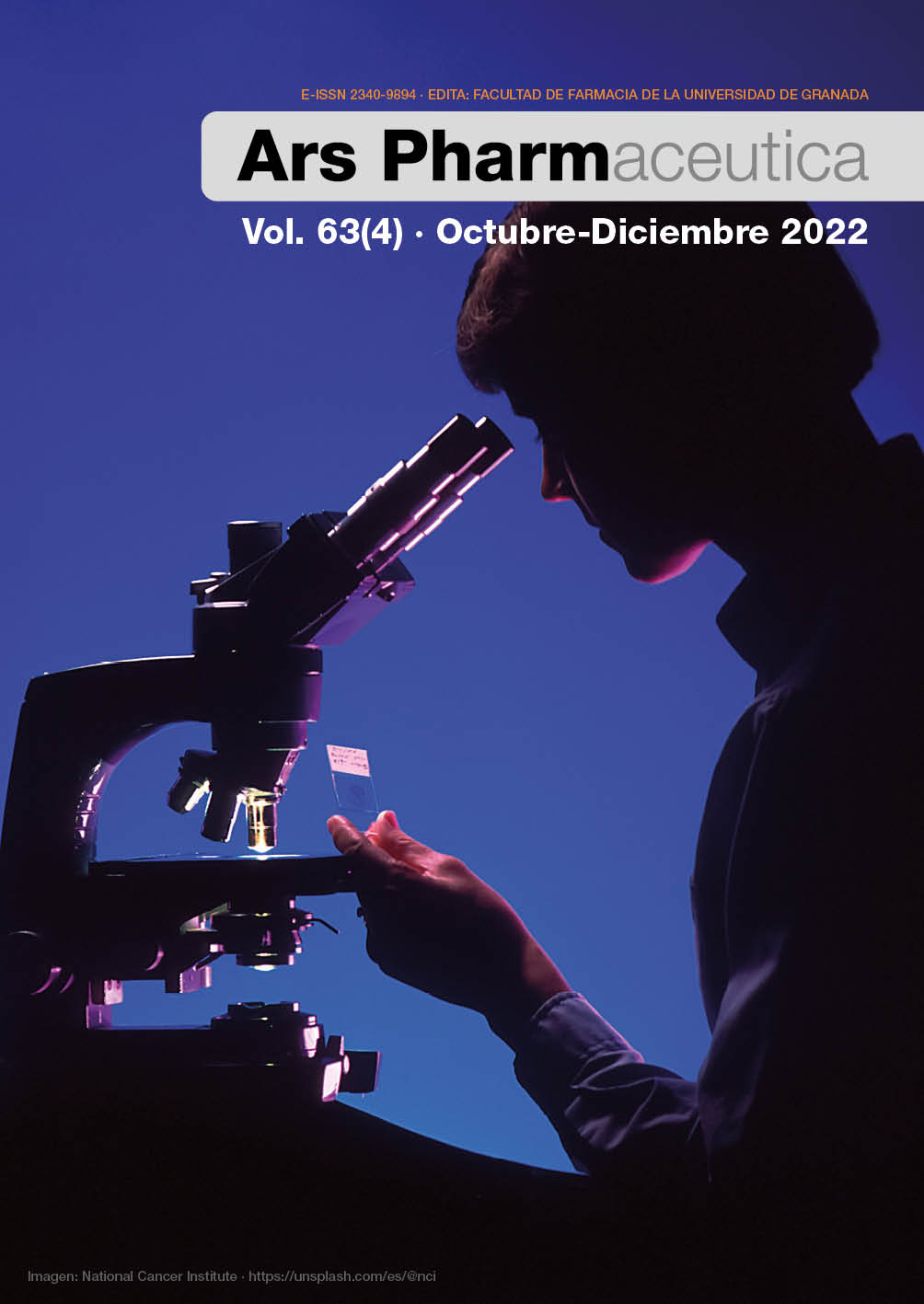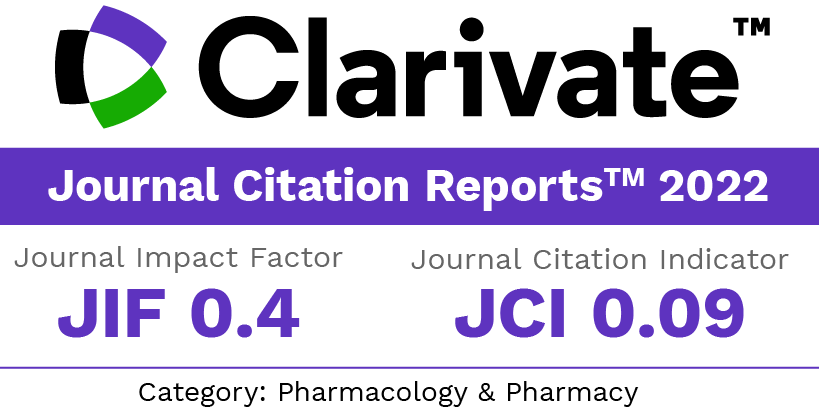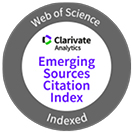Clinical practice in prevention of migraine with calcitonin-gene related peptide monoclonal antibodies: real-world evidence
DOI:
https://doi.org/10.30827/ars.v63i4.23848Keywords:
Chronic migraine, high-frequency episodic migraine, calcitonin-gen related peptide, erenumab, fremanezumab, galcanezumabAbstract
Introduction: Calcitonin gene-related peptide (CGRP) monoclonal antibodies (mAbs) are novel therapeutic option for prevention of chronic migraine (CM) and high-frequency episodic migraine (HFEM).
Method: An observational, retrospective, multicentre, real-world evidence study was developed to analyse the effectiveness and safety of anti-CGRP mAbs (erenumab, galcanezumab, fremanezumab). Effectiveness was measured by monthly migraine days (MMDs) reduction. Adverse events were recorded for safety outcome.
Results: Results from 127 patients showed similar effectiveness between erenumab and galcanezumab in MMDs reduction. A notable proportion of patients switched of mAb because of loss of response or primary no-response after seven months: 15.11% erenumab; 24% galcanezumab. Some patients were concomitant treated with Onabotulinumtoxin A (Onabot A): 8.13% erenumab; 12% galcanezumab; 6.25% fremanezumab. More than 60% of the total were previously treated with Onabot A with loss of response. Cardiovascular adverse events are exclusively reported by erenumab group (chest pain, tachycardia).
Conclusions: Current clinical practice is based on switching of CGRP mAbs after loss of response or refractory migraine, even though evidence for this practice is limited and effectiveness between the drugs has been demonstrated to be equivalent. The period of 12 weeks since the first dose of the CGRP mAb, recommended by Regulatory Agencies, should be respected to determine if the mAb selected is being ineffective. At least, half of the patients complained about lack of follow-up by reference neurologist. Clinical pharmacists are important to help these patients manage the burden of migraine.
Downloads
References
Edvinsson L, Haanes KA, Warfvinge K, Krause DN. CGRP as the target of new migraine therapies - successful translation from bench to clinic. Nat Rev Neurol. 2018;14(6):338-350. Doi: 10.1038/s41582-018-0003-1.
Headache Classification Subcommittee of the International Headache Society. The International Classification of Headache Disorders: 2nd edition. Cephalalgia. 2004;24 Suppl 1:9-160. Doi: 10.1111/j.1468-2982.2003.00824.x.
Blumenfeld AM, Frishberg BM, Schim JD, Iannone A, Schneider G, Yedigarova L et al. Real-World Evidence for Control of Chronic Migraine Patients Receiving CGRP Monoclonal Antibody Therapy Added to OnabotulinumtoxinA: A Retrospective Chart Review. Pain Ther. 2021. Doi: 10.1007/s40122-021-00264-x.
Buse DC, Fanning KM, Reed ML, et al. Life with migraine: effects on relationships, career, and finances from the chronic migraine epidemiology and outcomes (CaMEO) study. Headache. 2019;59:1286–99. Doi: 10.1111/head.13613i
Bloudek LM, Stokes M, Buse DC, Wilcox TK, Lipton RB, Goadsby PJ et al. Cost of healthcare for patients with migraine in five European countries: results from the International Burden of Migraine Study (IBMS). J Headache Pain. 2012;13(5):361-78. Doi: 10.1007/s10194-012-0460-7.
Silberstein SD, Holland S, Freitag F, Dodick DW, Argoff C, Ashman E; Quality Standards Subcommittee of the American Academy of Neurology and the American Headache Society. Evidence-based guideline update: pharmacologic treatment for episodic migraine prevention in adults: report of the Quality Standards Subcommittee of the American Academy of Neurology and the American Headache Society. Neurology. 2012;78(17):1337-45. Doi: 10.1212/WNL.0b013e3182535d20. Erratum in: Neurology. 2013;80(9):871.
González-Hernández A, Marichal-Cancino BA, MaassenVanDenBrink A, Villalón CM. Side effects associated with current and prospective antimigraine pharmacotherapies. Expert Opin Drug Metab Toxicol. 2018;14(1):25-41. Doi: 10.1080/17425255.2018.1416097.
Burstein R, Blumenfeld AM, Silberstein SD, Manack Adams A, Brin MF. Mechanism of action of onabotulinumtoxinA in chronic migraine: a narrative review. Headache. 2020;60:1259–72
Food and Drug Administration. Drug innovation—novel drug approvals for 2018. [Available at: www.fda.gov/drugs/developmentapprovalprocess/druginnovation/ucm592464.htm.] Updated November 13, 2018. [Accessed; April 22, 2021]
Peters GL. Migraine overview and summary of current and emerging treatment options. Am J Manag Care. 2019;25(2 Suppl):S23-S34.
MaassenVanDenBrink A, Meijer J, Villalón CM, Ferrari MD. Wiping Out CGRP: Potential Cardiovascular Risks. Trends Pharmacol Sci. 2016;37(9):779-788. Doi: 10.1016/j.tips.2016.06.002.
Briceño-Casado MDP, Gil-Sierra MD, De-La-Calle-Riaguas B. Switching of monoclonal antibodies against calcitonin gene-related peptide in chronic migraine in clinical practice: a case series. Eur J Hosp Pharm 14 September 2021. Doi: 10.1136/ejhpharm-2021-002946
Spanish Agency of Medicines and Medical Devices (AEMPS). Informe de posicionamiento terapéutico de fremanezumab (Ajovy®) [Last update: 3 november 2020] Available at: https://www.aemps.gob.es/medicamentosUsoHumano/informesPublicos/docs/IPT_11-2020-fremanezumab-Ajovy.pdf?x21801
Briceño Casado MDP, Fenix-Caballero S, Gil-Sierra MD, Dominguez Cantero M, Alegre-del Rey EJ. Indirect treatment comparison of anticalcitonin gene related peptide pathway antibodies in chronic migraine. Eur J Hosp Pharm. 2020;27(Suppl 1):A109-110.
European Medicines Agency (EMA). Aimovig® Assesment report. [Last update: 15 june 2021] Available at: Aimovig, INN-erenumab (europa.eu) Available at: https://ejhp.bmj.com/content/27/Suppl_1/A109.2#T1 [Accessed: 11 October 2021].
Published
How to Cite
Issue
Section
License
Copyright (c) 2022 Celia Castaño-Amores, Pelayo Nieto-Gómez, María Teresa Nieto-Sánchez, Raquel Álvarez-Sánchez

This work is licensed under a Creative Commons Attribution-NonCommercial-ShareAlike 4.0 International License.
The articles, which are published in this journal, are subject to the following terms in relation to the rights of patrimonial or exploitation:
- The authors will keep their copyright and guarantee to the journal the right of first publication of their work, which will be distributed with a Creative Commons BY-NC-SA 4.0 license that allows third parties to reuse the work whenever its author, quote the original source and do not make commercial use of it.
b. The authors may adopt other non-exclusive licensing agreements for the distribution of the published version of the work (e.g., deposit it in an institutional telematic file or publish it in a monographic volume) provided that the original source of its publication is indicated.
c. Authors are allowed and advised to disseminate their work through the Internet (e.g. in institutional repositories or on their website) before and during the submission process, which can produce interesting exchanges and increase citations of the published work. (See The effect of open access).























